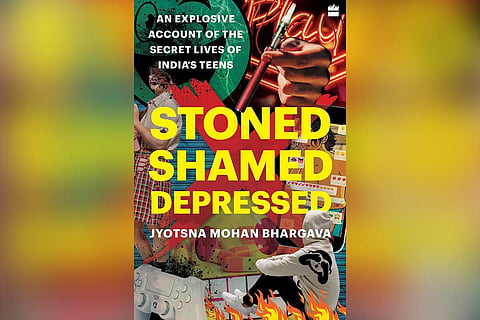

Once upon a time, a show like Star Trek – based in the twenty-third century – was a fascinating thought. Where would we end up, many of us kids wondered – our imagination running free and wild. There were only so many trees we could climb, so we had plenty of time for dreaming.
Now when we hear that the side-tilting selfie is keeping many a doctor in business fixing endless instances of cricks in the neck, we know we have reached somewhere ‘where no man has gone before’ – to borrow the phrase from the original Star Trek series of the 1960s. Now we have kids looking almost robotic, online identities merging into one another’s, days flowing into nights … this is a generation of children that has an entire galaxy of friends and yet, they could not have been on a lonelier planet.
The future then is already here and, unlike the humorously bizarre world many of us had imagined, there is nothing funny about it. The clones can be found staring into their smartphones, flexing their latest gadgets while living a double life in the virtual world, convinced the photoshopped version of their faces is the reality. Looking and behaving like they are an assembly-line production, these children eschew conversations for images and live videos – even those horrific live-streamed suicides do all the talking.
‘The children are becoming sleep deprived,’ says Anita Raina, principal of one of the most sought-after schools in the National Capital Region. ‘They come to school and crash in the infirmary. They have been on the phone the entire night – on Snapchat, Instagram, etc. Sometimes, I feel bad and just let them sleep.’ There is more evidence to indicate that schools may be fast becoming ground zero of the social media revolution. ‘Sleep deprivation is a cycle. They remain distracted and then get into substance abuse to keep awake through the lessons.’
No one ever said cyberspace was going to be a walk in the park, but our children – and many adults too – behave as though there is a pot of gold or ‘likes’ on the other side of the social media haze. Not picking up the phone every two minutes – if it’s even that long – to check someone’s update on Instagram is the real ‘FOMO’, the Fear of Missing Out.
‘The excitement comes from being rebellious initially and then it turns into insomnia. At first, I made it through the school day by sleeping in class. Or I would take a two-hour nap after school and that would be it. I have gone through six days with only three hours of sleep in total. I spent the rest being on Instagram, Netflix … anything,’ says a seventeen-year-old girl.
In 2019, a study confirmed what we already probably knew – that 66 million Indian children in the age group of five to eleven years access the internet on their family devices. The tweens are the new teens, and the WHO now recognizes gaming addiction as an illness. The way things are headed, chances are it is only a matter of time before ‘internet-use disorder’ gets its own dubious classification. Some children are so far ahead in their knowledge and prowess of the digital world that many parents may not be equipped to play the bad cop – especially while living under the misconception that there is no crisis unless it involves drugs or alcohol. ‘As your child grows, keep in mind that too much or poor-quality screen time has been linked to obesity, irregular sleep patterns, behavioural problems, loss of social skills, violence and less time for play,’ warns paediatrician Dr Nitin Verma.
Danger lurks in many corners, from deepfakes – images and videos that are replaced by fake content involving real people where a large percentage is pornographic − and fake news in chatrooms to pop-up advertisements for weight loss. The forbidden world may be here. Many parents do not seem to realize that leaving their kids unsupervised on the internet can lead them to mentally unravel. Or perhaps that message is bouncing back, and they prefer to remain blissfully oblivious.
‘It’s an easier route for them,’ says Nena, a mother of three sons. ‘It’s so much harder being a parent that sticks to their guns than one who doesn’t. I know this because when I’m at my weakest, I contemplate giving in. But I don’t want to lose my son to a gadget and become less communicative. This will be worth it. Not soon. But in time.’ Nena is fighting the fight of her life in refusing to give her eldest – who is fourteen years old – a mobile phone. It is a move that has now become unheard of. ‘My son is the only one among his classmates who doesn’t have a phone. I have never met a parent who is pleased with their child’s phone usage or said to me, “Oh you should get him one.” Instead they ask, “Why don’t you?” And when I give them the reasons, they look quite sheepish.’
Excerpted from Stoned Shamed Depressed by Jyotsna Mohan Bhargava, published by HarperCollins India. The book is available on Amazon here.